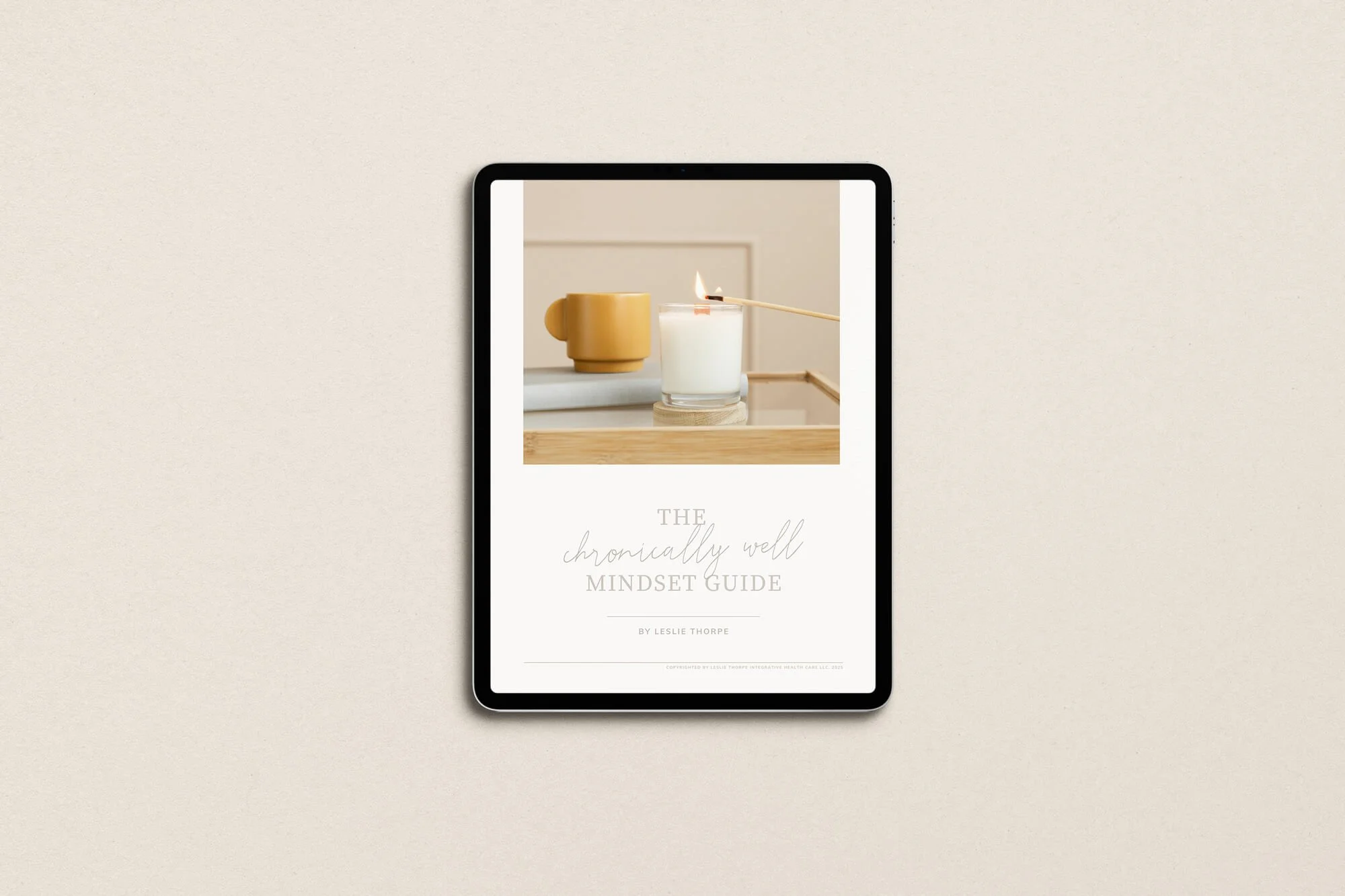Can You Live A Good Life With Chronic Illness?
One of the hardest parts of living with chronic illness is how it impacts every facet of your life.
From physical limitations to emotional struggles, the weight of a chronic condition often extends far beyond just medical symptoms. It seeps into your work life, disrupts your home environment, challenges your social life, and tests your emotional resilience.
Yet, I want to assure you that having a chronic illness doesn't mean the end of a fulfilling and meaningful life.
In fact, many, including myself, have discovered that living with a chronic condition can bring about profound clarity about what truly matters to you. This newfound perspective often enables us to craft a life that reflects our deepest values and desires more clearly than ever before.
In this blog post, we'll explore how you can navigate the complexities of chronic illness while still leading a good life. We'll delve into reclaiming your quality of life. And, we'll uncover the possibilities that lie beyond the struggles, proving that a good life is not only possible but also within your reach.
Defining Quality Of Life With A Chronic Condition
Quality of life is your perception of your physical and mental health over time. Clearly, a chronic illness diagnosis can impact your perception of your physical health. But, quality of life is a broader concept than that. It pertains to how all the parts of your life fit together so that you can get what you want out of life.
There is no question that a chronic condition can impact how you feel and how you live. But, once you adjust to what is going on with your health, you can make strategic decisions to ensure your lifestyle is serving you and helping you spend your energy where you want.
Interestingly, quality of life is about your perception. So, even if you have a chronic condition that changes your view on your physical health, it can also present an opportunity for you to create a life that feels in line with what you want most - even if you have chronic illness.
Can you live a good life with chronic illness?
In a word - yes. It might look a bit different than life prior to chronic illness (if that applies to your situation). However, quality of life is something that is attainable with some clarity and focus.
You can improve your quality of life. This requires some change in your mindset - a bit of openness to what is possible in your life. It starts with taking a look at all aspects of your life and, possibly, making some tough decisions the reflect your priorities now that life has shifted.
Living with a chronic illness doesn't mean giving up on your dreams or resigning yourself to a lesser quality of life. It means redefining what a "good life" looks like for you and taking proactive steps to achieve it. Whether it's connecting with supportive communities, seeking professional advice, or simply adjusting daily habits, there are many ways to ensure your life is fulfilling and aligned with your aspirations.
For related reading, I invite you to read THIS blog post - and, make sure you get to the part that discusses how the parts of our lives can work together or against each other!
Can You Live A Normal Life With Chronic Illness?
What is normal, anyway? Our perception of normal is as individual as we are. With any life change, our version of normal shifts. If you move to a new city, start a new job, get married, etc., these all lead to a “new normal” in your life. And, like any other life change, chronic illness typically requires a shift in what is normal for you.
Before I had a chronic illness, I only went to the doctor for regular check-ups and the occasional illness. However, all that changed when I started to struggle with my health. During cancer treatment, I had medical appointments multiple times a week. My medical appointments felt like a full time job. And, now that I am in a generally healthy season in my life, I still spend more time at appointments than the average person. But, I don’t go to appointments so frequently that I have a favorite chair in the waiting rooms like I used to. In other words, my schedule and priorities have adjusted to what is going on with me and my health.
And, so have other parts of my life. During cancer treatments, I needed to adjust my life accordingly. When I was going through radiation at 22 years old, I delayed the start of law school by a year. And when I went through chemotherapy at 31 years old, I took a disability leave from work. To sum it up, I made adjustments to my life to reflect what I needed in the moment in order to support my quality of life.
Of course, these are the more obvious areas of life where I knew I needed to take a step back because I could not show up in the way I wanted to. However, it was a little more nuanced (and messy) in how I made choices in my personal and home life. I can look back on it now and see what was going on. But, in the moment, I really struggled with getting support and saying “no.” I still wanted to do *all the things.* I went through cycles of trying to live out my old normal when the energy level of my new normal was no match for that. I learned my lessons the hard way before I had ever heard of the Spoonie Theory.
But, once I finally noticed what I was doing to myself (it took YEARS, by the way), I embraced my normal. Do I miss not needing to worry about my energy level? Of course! But, in the end, I know that pushing myself to live a life that is not right for me now does not serve me or my quality of life. I’m not saying I have it all worked out perfectly. But, when I notice I am feeling tired or coming down with a cold, I know that the right choice for me is to slow down, rest, prioritize, simplify, and delegate as necessary. And, as a result, I really savor the times when my energy level is good.
Embrace Your New Normal
By opening your heart and mind to your version of the Chronically Well Mindset. Find yours with the Chronically Well Mindset Guide.
Embracing Your New Normal
Living with a chronic illness means continually adapting to your “new normal.” This might mean frequent medical appointments, adjusting professional goals, or learning to say no even when you want to do everything. By recognizing your parameters, you can make choices that prioritize your well-being.
Take it one day at a time, be kind to yourself, and remember that adjusting your life to support your health is not a sign of weakness but of strength. It’s important to know that you are doing what’s right for you.
For related reading, check out THIS blog post on accepting your chronic illness, even if you aren’t happy about it.
In conclusion, while living with a chronic illness might require some adjustments to your definition of a “good” or “normal” life, it absolutely does not mean those aspirations are out of reach. In fact, facing adversity often brings a deeper understanding of what truly matters to you and helps you shape a life filled with purpose and clarity.
Remember, you deserve to live the life you envision - whether or not you have a chronic illness.
How can you live your version of a “good” and “normal” life with a chronic condition?
Does this resonate?Please share this post with friends! Click the menu on the right to share on social media.





